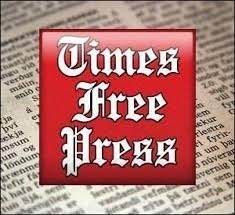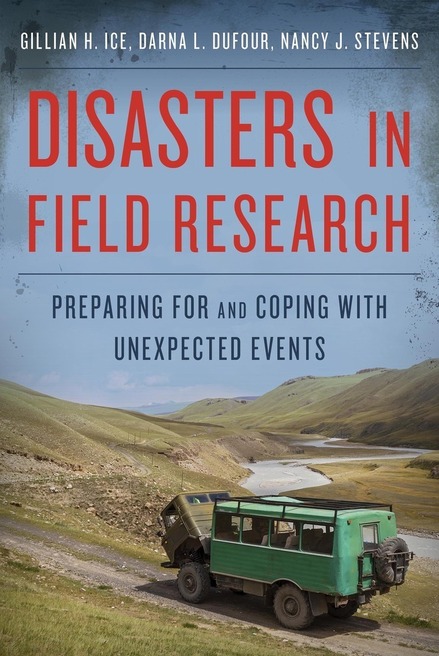Holbrook's life recognized by The New York Times (visit link):
http://nyti.ms/1REQzjE
Standford University will host a celebration of Holbrook’s life and career
Sunday, May 22nd
4:00 – 7:00PM
Frances C. Arrillaga Alumni Center
326 Galvez St, Stanford, CA 94305
A celebration of Holbrook’s life was hosted on Friday, March 11, 2016. Here is a loving video tribute that was shared that evening.
https://www.youtube.com/watch?v=Lt1MyLOBkDQ&feature=youtu.be
Personal Tributes
At the bottom of this page, you are invited to submit your personal tribute to Holbook. Please scroll down and enter your rememberances in the "Leave A Tribute" Section.
Condolences
To share your thoughts and memories with Holbrook’s family, please send your condolences to:
His mother
Ms. Marylou Kidd
526 Route 507
Paupack, PA 18451
His father
Dr. Alan Kohrt
6312 Forest Park Drive
Signal Mountain, TN 37377
Donations
In lieu of flowers, please consider making a donation in Holbrook’s memory to the Holbrook Kidd Kohrt Cancer Immunotherapy Fund at Anticancerfund.org
U.S.-based donors can support the fund in a tax-efficient way through a contribution to the King Baudouin Foundation United States (KBFUS). Because KBFUS is a public charity, within the meaning of Sections 501(c)(3) and 509(a)(1) of the IRS, donors may claim the maximum tax benefits allowed by U.S. law for their contributions. If you wish to support Holbrook's legacy, here is how to proceed:
Credit Card Donations: Go to www.kbfus.org, click on the ‘Donate Now’ button and select “Anticancer Fund (BE)” under ‘Giving Option 1: Nonprofit Partners Overseas’.
Check Donations: Write your check to KBFUS, write “Anticancer Fund” in the memo section of the check, and send it to KBFUS, 10 Rockefeller Plaza, 16th Floor, New York, NY 10020.
Wire Transfers / Other property: Contact KBFUS at: email info@kbfus.org, phone (212) 713-7660.
Donations in Holbrook’s memory can also be made to the following organizations:
Children’s Hospital Foundation: please contact Julie Taylor at Julie.taylor@Erlanger.org
Stanford University: Please contact Dr. Ron Levy at levy@stanford.edu
Tributes
Leave a tributeTo his family and friends: may your memories of this amazing individual bring you peace and comfort.
My favorite,
"somedays the tortoise, somedays the hare, regardless, with persistence we will get there, to the chance to cure, and with the heart to heal" Brilliant
Omid
Georg Beilhack and Rossella Monteforte
Your light will shine forever. You have touched so many lives in so many levels. Truly an inspiration. Such a beautiful mind, who is now shining above us with the rest of the stars. I will never forget the day I saw you driving your truck, giving a young cancer patient a ride. May you rest in eternal happiness with the Lord by your side. Jacqueline Chavez
Despite his relatively young age, his presence was reassuring, his vision inspiring, his approach to science honest and fearless, and his dedication to curing cancer relentless. He was one of the rare people I met in my life who displayed a natural leadership totally unfettered by his ego, perhaps because he never took life for guaranteed.
Just a few months ago, when he was in London fighting for his life, we had a long conversation on the phone about a new immunotherapy approach for cancer, a collaboration that we will never be able to start, very unfortunately. In his short life Holbrook had a big impact and I feel fortunate to have met him.
During a conference in Doha last spring I visited with Holbrook the art center in the historical market, Souq Waqif. There, I took a picture of a painting showing a little girl who makes soap bubbles that transform the gray and sad place around her into a mysterious and magical one. To me it symbolizes the hope that keeps us going even in the darkest moments. Holbrook really liked the painting, and I uploaded here the picture as a posthumous present to him. May the sense of hope that he inspired in so many people live forever.
After reading some of the stories about Brook, I was especially moved by one of his quotes in which he said "Initially there is a very high level of fear when you realize the outcome is out of your hands. You have to choose whether you're going to perseverate on that and feel fear every day, or if you're going to hope and move forward." It is very clear which one he chose.
I hope to be able to contribute to maintaining his projects in activity and am willing to take part in any initiative proposed by his family or University to keep his name alive.
My deepest condolences to your family and loved ones.
You are still within all members of Kohrt’s Lab all over the world. We will keep doing our best with you for cancer patients.
Steve Alexander
RIP, HK
Ben Van Hooland - 15yr
Holbrook was one of the shining lights in this world- a brilliant scientist, a committed and caring oncologist, a powerful communicator, a patient advocate, a driven investigator and a wonderful friend.
His story is that of a survivor, who overcame terrifying odds to reach adulthood, living through a time when nearly almost all his friends with hemophilia died from HIV. Undoubtably, this experience further fueled his commitment to medicine, and his endless passion to help others suffering from disease.
When I first met Holbrook approximately 12 years ago, he was a first year medical student at Stanford, working a summer job in the lab. His energy, curiosity and kindness were immediately evident in even the simplest interactions. He's someone whose friendship I've cherished since that time.
In the intervening years, he became a world class translational oncologist and immunologist, on the forefront of the revolution in cancer immunotherapy as a member of the Stanford Oncology faculty. Many of us have been energized by one of several engaging talks he's given - either on his work in activating immune responses in cancer patients or on his experiences as a hemophilia patient. Many of his insights as a cancer immunotherapy clinical investigator have become part of the fabric of what we understand about cancer and immunity today.
His passing was sudden and unexpected, and came all too early.
May his spirit continue to live on in all of us he touched.
In memory of Holbrook Kohrt.
Leave a Tribute
Ben
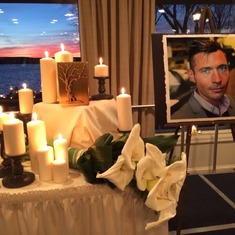
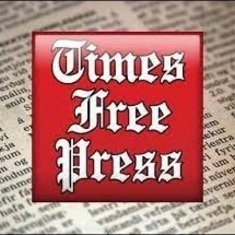
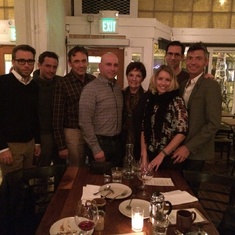
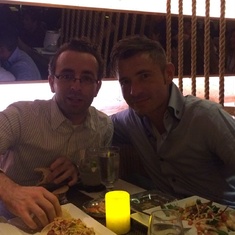
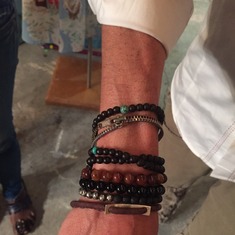
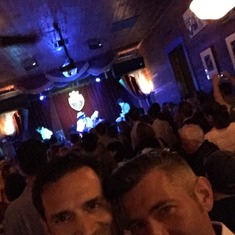
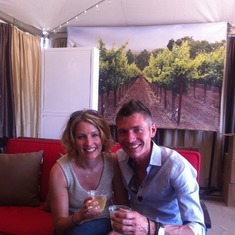
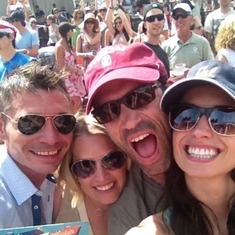

Holbrook
I love to hear your voice, Holbrook.
(slides and audio from Holbrook Tribute at SITC 2016)
/dan
A Chattanooga children's doctor mourns the loss of his own child
As seen in the Chattanooga Times Free Press, March 21, 2016, by Steve Johnson
http://www.timesfreepress.com/news/local/story/2016/mar/21/childrens-doctor-mourns-loss-own-child/356292/
"I believe people who go into pediatrics have a calling and not a job," Dr. Alan Kohrt said as he stared out the window of his office off Third Street.
Pediatricians treat children, and most children have a long future ahead of them, he said.
"We don't have as many who die, fortunately, but the ones who do, it's that loss of potential — who could that child have become?"
Kohrt is not just any Chattanooga pediatrician, nor is the child he is thinking about just any child.
He has worked all of his professional life as a children's doctor, most recently for seven years as chief medical officer at Children's Hospital at Erlanger and chairman of the pediatrics department at the University of Tennessee College of Medicine Chattanooga.
But for 38 years, he had his own sick child, Brook, who was born with hemophilia, a rare disease in which the blood refuses to clot. For someone with hemophilia, every minor cut or bruise can be life-threatening.
When you have an often-fatal disease, "you don't make assumptions about your life, that you will live a long time," said Kohrt, a soft-spoken man who often pauses to choose just the right word. "For Brook, especially as he got older, death was sort of his constant companion."
Top of his class in high school and college, Brook Kohrt graduated from Stanford Medical School and became one of the leading cancer researchers in the world, touted by his peers and profiled in The New York Times.
His specialty was the cutting edge of cancer studies — finding ways to stimulate the body's immune system to fight the tumors that threatened to overwhelm it.
And when his illness threatened his own life, Brook used his skill to craft his own treatment, a custom drug he hoped would overpower his body's own antibodies that were rejecting the blood-clotting factor that kept him from bleeding to death.
But he failed, and his father had no way to save his child. And so on this March day, Alan Kohrt is grieving.
Hemophilia is a rare illness. Its victims are almost always men, and it strikes only one in 5,000 male births, said Dr. Jennifer Keates, a specialist in cancers of the blood in children at Children's Hospital at Erlanger. It is caused by a missing gene that should produce a coagulant that causes blood to clot and stop the bleeding.
It has been called the "royal disease" because Britain's Queen Victoria passed it on to at least three of her children who, in turn, intermarried with other royalty and spread it to Russia, Germany and Spain. It caused the deaths of several royals who were involved in what normally would have been minor auto accidents.
While the threat from cuts is obvious, bleeding in the joints can be crippling.
"One of the common things that happens with severe hemophiliacs is that they often develop a joint that bleeds spontaneously," Keates said.
The worst threat is bleeding in the brain, difficult to stop and often unnoticed until it is too late.
Hemophilia ranges from mild to severe. Mild hemophilia is almost a chronic disease, with life expectancy near normal. But severe hemophilia is often fatal before adulthood if not constantly monitored.
Alan Kohrt can still feel the shock when he and his wife heard the news that Brook's hemophilia was severe.
"I can remember hearing the diagnosis for the first time; it just totally changes your life," he said.
From the beginning, there were problems.
Brook suffered his first bleed, in an elbow, when he was 2 or 3 months old. When his parents took him to a hospital, a social worker at first accused his mother of child abuse because there seemed to be no other explanation in such a young child.
The Kohrts lived in rural Pennsylvania, many miles from the nearest hospital, so Alan Kohrt became his son's doctor, injecting him regularly with Factor 8, the blood-clotting agent his body was not producing.
"If you have ever put an IV in your own kid," he said, "it became pretty ominous."
They took all of the normal precautions — Brook wore a helmet to school and occasionally used an elbow or knee brace. Still, because of bleeding in his joints, he needed surgery on a knee, an ankle and a shoulder as a child.
But the greatest threat came from the medicine he was taking.
A new, concentrated form of the blood clotting factor was introduced that gave hemophiliacs the ability to inject themselves with the drug at home.
"The big pot from which it was taken was a pot combining plasma from tens of thousands of donors," said Dr. Alan Cohen, former head of pediatrics at Children's Hospital in Philadelphia and the doctor who treated Brook at the time. "If you had any contamination in any of the blood, when you put 10,000 or 20,000 donors in the pot, you would contaminate all of the vials."
And that is exactly what happened, first with Hepatitis B and C and then with HIV, which was not even identified until 1981. Nationally, 90 percent of all severe hemophiliacs contracted HIV, including Ryan White, whose case highlighted the AIDS epidemic and the importance of blood screening. Many of them died, including White.
"It absolutely wiped out a generation of men and boys with severe hemophilia," Cohen said.
Brook went to a summer camp for hemophiliacs.
"As kids in other parts of Pennsylvania developed HIV, the number of kids at camp every year decreased," his dad remembered. Fortunately, doctors at Children's Hospital were among the first in the U.S. to realize HIV was spreading through the blood supply, and Brook's parents went back to using the older, nonconcentrated form of Factor 8.
"That was a scary time," Kohrt remembered. "[Brook] was very fortunate."
Brook did not cope with his disease by retreating from the world. Instead, he developed a drive to make something of his life, no matter how long it lasted.
"I've never known anybody in my life as focused as Brook," Kohrt said. "My father was stubborn, and I'm stubborn, but Brook was tenacious on what he was trying to achieve."
Very early on, that was clearly going to be medical school. He was 10, his dad said. That was not unusual. His older brother would become a physician and all of his siblings ended up with graduate degrees. But Brook wanted to make a difference.
"The giving back was the most important thing, making a difference," Kohrt said. "While he had fantastic relationships with other people, he basically had no personal life."
Brook married twice, but divorced twice, and there were no children.
"He decided not to have children because he felt he really wanted to do his research and give back to the world that way," Kohrt said. "He and I had incredible disagreements over that. I felt family would give him all that support."
But his son said he had seen how often his father's medical practice took him away from his family.
"'I know how much you've been gone, Dad,'" Kohrt remembered Brook saying once. "'I'm gone even more than you've even thought of being gone.'"
Brook started out studying cancer, and in particular, what are called monoclonal antibodies, cells that will bind to specific other cells. If such a cell can be found that will target a specific cancer cell, it can be used to block a key part of a tumor's cell's functioning or attach something toxic to that cell and kill it. Where traditional chemotherapy kills many cells, cancerous and noncancerous, a monoclonal antibody can attack only the bad cell.
There has been rapid progress as researchers have discovered more and more ways of targeting specific tumor cells, either with drugs or by stimulating the body's immune system to attack cancer cells.
Brook was a leader in the field, working on lymphoma — a cancer of the blood — an appropriate research topic given his own experience with less-than-perfect blood.
"I feel like my experiences have prepared me to provide some level of empathy for my patients who are newly diagnosed with cancer," Brook Kohrt told Stanford Medicine magazine in 2013. "I can really feel how scared they can be because I remember what it was like to be in that situation. What I'm doing now, all of it, is fueled by my personal background with hemophilia."
But Brook's own medical problems worsened.
He had taken increasing doses of Factor B as he got older, and when he needed an operation to repair a fractured leg, replace a knee joint, and put a pin in his femur, he took even more, Kohrt said. His body slowly started to reject the very drug that was keeping him alive.
"He had to have larger and larger doses," Kohrt said. "The specter of death was ever closer."
Brook tackled the problem head-on: If his body was rejecting the cure, he would himself design a monoclonal antibody that would overcome his body's resistance. He succeeded, with help from researchers in Europe, but the side effects were too severe.
"It caused an immune reaction throughout his body, so it didn't work," Kohrt said.
He turned to a new experimental treatment, called bispecific monoclonal antibodies, a way of clotting the blood that did not require Factor 8, and moved to Europe to participate in clinical trials that had not yet begun in the U.S. The treatment seemed to be working, so he took a break a month ago and headed to the Caribbean for a therapeutic retreat.
But things went wrong. Brook developed a staph infection that spread to his blood. He returned to Miami for treatment, but then suffered massive bleeding in his brain, something he had always feared.
He died Feb. 24 at age 38.
In an obituary, The New York Times called him "a hemophiliac who transformed his own chronic condition into a personal and public crusade for medical cures."
In announcing his death, the president of the Society for Immunotherapy of Cancer praised his "significant impact on the field" and said he had "brought his considerable scientific insights and incredible energy to every project."
There is a fund in his memory for Erlanger's new Children's Hospital.
"I have to have an incredible sense of gratitude, that he had the years he had," Kohrt said. "I have to be grateful for all he has accomplished, and how he moved cancer therapy forward."
But there is still the sadness of his loss, made deeper by the knowledge the field is changing, that new cures are being discovered and that his son might have found them himself, if only he had had more time.
There is love and loss in his voice as he tries to explain how it feels to be a doctor of children and to not be able to save his one special child.
"Probably no parent who looks at their child's death, whether it is in a car accident or whatever, wouldn't say if he had just waited five more minutes, he would have been somewhere else but that has to spur us to provide better care to do more research, and that's what it's all about."
And then he adds, softly, "Life is tenuous."
Documentary Filmmaking and Medical Anthropology: Following the Money in Mongolia
By Robert Koenig, Brandon Kohrt, & Holbrook Kohrt
Conducting research in medical anthropology, one would think that we had a broader view of illness and its socioeconomic context. However, that was not the case when we started filming the documentary The Wrestler’s Second: Mongolia’s Struggle with Yadargaa. Fresh from our undergraduate training, this was our first attempt independently conducting anthropology research and making a documentary. We traveled to Mongolia in 1999 to observe how the shift from communism to capitalism a decade earlier had impacted health and wellbeing. We studied a fatigue related disorder, yadargaa, part of the Mongolian traditional medicine nosology. We wanted our documentary to follow one person with yadargaa as he or she went through treatment for the condition.
After interviewing people with the condition in traditional and allopathic hospitals, we selected Tsoodol, an older man who had recently suffered a stroke and had been diagnosed with yadargaa. We met Tsoodol on the yadargaa ward in a hospital in Ulaanbaatar where he was receiving acupuncture treatment. We were told that the 69-year-old man was famous in the athletic community. He was a wrestling coach whose wrestlers had won at the famous Naadam competition held ever year in Mongolia. Tsoodol was admitted after suffering from a stroke leaving him with facial paralysis and left-sided weakness. His stroke was blamed not on hypertension, high cholesterol, or an arrhythmia, rather his primary diagnosis was yadargaa.
Tsoodol’s physician said that he needed further treatment and that she was recommending a trip to Khujirt, a health spa in the countryside. Tsoodol said that he planned to follow the doctor’s recommendation. We thought this would be an opportunity to follow the course of treatment on film.
We interviewed Tsoodol and his wife in their felt tent in a crowded impoverished section of Ulaanbaatar. Both Tsoodol and his wife said that chronic worry over their family’s economic state caused the yadargaa. “I have had yadargaa since 1990 when the economy changed. After 1990 the government no longer gave us enough money for healthcare. Before 1990 they paid healthcare costs. But, now my pension is so low that I must work very hard at selling things at the Black Market,” Tsoodol told us.
Tsoodol could do little to alter the economic structure of his nation. The social factors impacting his yadargaa were not under his control. At the moment the only care Tsoodol received was acupuncture. Khujirt, the recommended health spa, was a day’s drive south of Ulannbaatar and was famous for treating yadargaa. Patients stay for a few weeks. They relax in the countryside, and enjoy sulfur springs, mud baths, and hot stone massage. Therapy includes acupuncture and herbal medicines.
As we began the plan to travel with Tsoodol to Khujirt, the issue of compensation arose. We did not want to pay cash to Tsoodol directly. We worried that paying him would be coercion to get the treatment. After lengthy discussions among ourselves and with Tsoodol’s family, we found that the cost for a 14-day treatment at Khujirt would be approximately $100. Under the new healthcare system, Tsoodol was required to pay half of this. This was more than a month’s earning for the financially concerned man.
We decided that paying for Tsoodol’s cost of the treatment would partially compensate him for participating in the documentary. We had heard of other filmmakers paying for the costs of rituals and ceremonies so that they could film them. This, at the time, seemed comparable in our minds.
A few weeks later we traveled with Tsoodol to Khujirt. We met with doctors who developed a fourteen day treatment for Tsoodol. That afternoon Tsoodol took a bath in the naturally hot mineral water that flows underneath the resort. After his bath Tsoodol showed us his hand. The sulfur water had turned his silver wedding band a metallic yellow. “Today, my ring became gold from silver.” Then he surprised us by saying, “It is too bad I cannot stay here. If I stay here for fourteen days, my ring will become real gold. After that mineral bath, I feel very happy. I should stay, but I have to go to my family in the countryside.” Tsoodol explained that he needed to go visit his relatives in a nearby region of the Gobi. We tried to encourage Tsoodol to do the treatment, but did not want to force the issue.
The next day we traveled with Tsoodol to visit his hometown. While with his family in the countryside, Tsoodol decided that he would receive the treatment at Khujirt after all. He said that a family member was traveling to Khujirt the next day and could take him back. He suggested that we meet him later to film him as the treatment progressed. We then gave him the $50 to pay for his treatment. Our plan was to return to Ulaanbaatar then meet with Tsoodol again at Khujirt after his treatment was underway. Then, we would go with him to the Naadam festival in his village.
Only three days later, to our surprise, we saw Tsoodol back in Ulaanbaatar selling bowls at the Black Market. Our reaction was a rapid sequence of emotions spanning anger, frustration, to eventual realization of our own misconceptions. The health spa and alchemy of Khujirt like most of the therapy for yadargaa is palliative. It does not correct the underlying problem. Massage and acupuncture was not going to stop him worrying about his families’ money. However, our $50 temporarily helped Tsoodol’s financial stress. Tsoodol revealed our ignorance to the root socioeconomic cause of Tsoodol’s yadargaa. Eventually, we did finish the film, and included in it this encounter with Tsoodol. In the end, documenting these events provided a more realistic picture of the contingencies of illness and economics. When working with documentary participants such as Tsoodol, the ethics of finances and filmmaking similarly cannot be extracted from the immediate socioeconomic conditions of illness and wellbeing.


